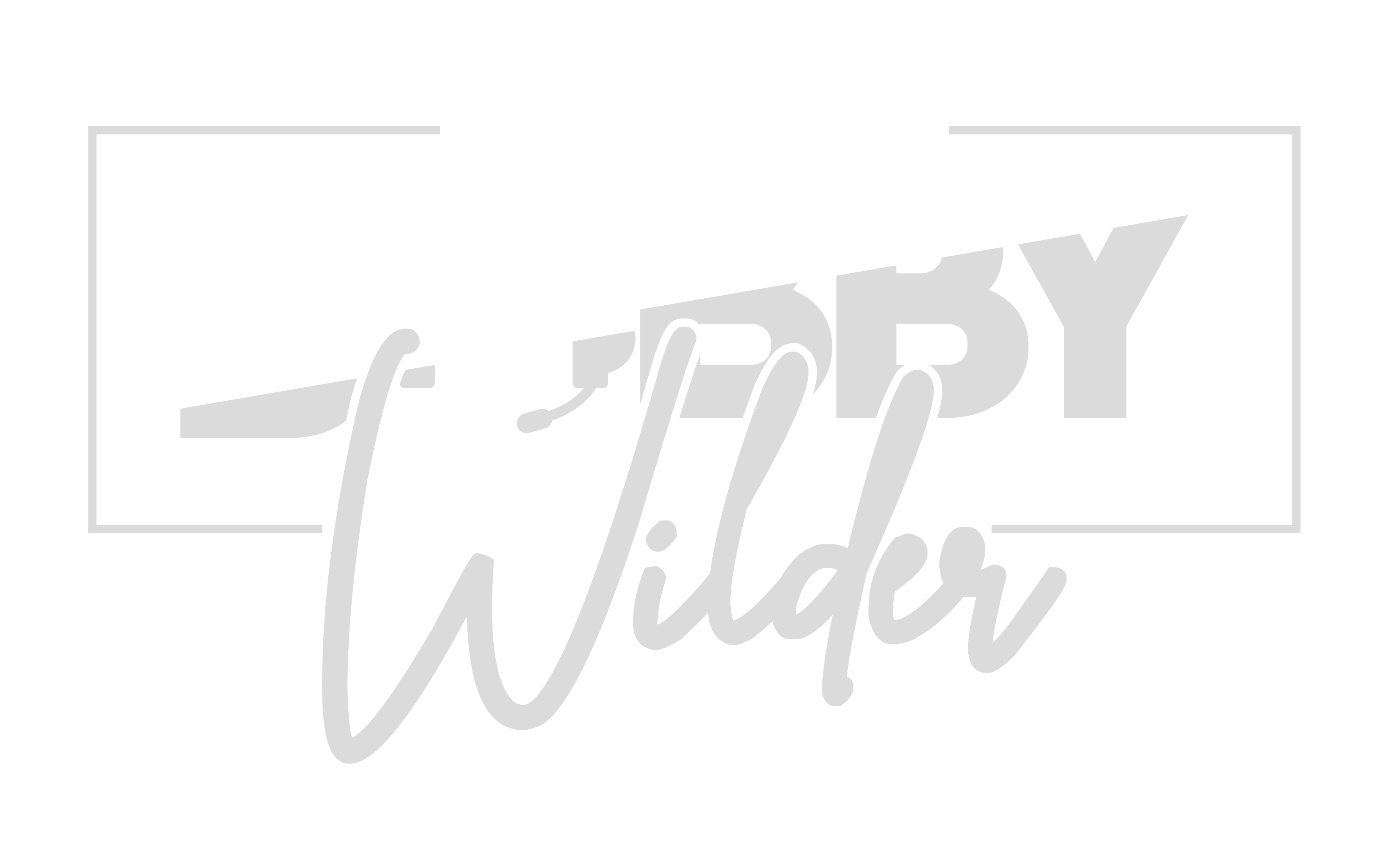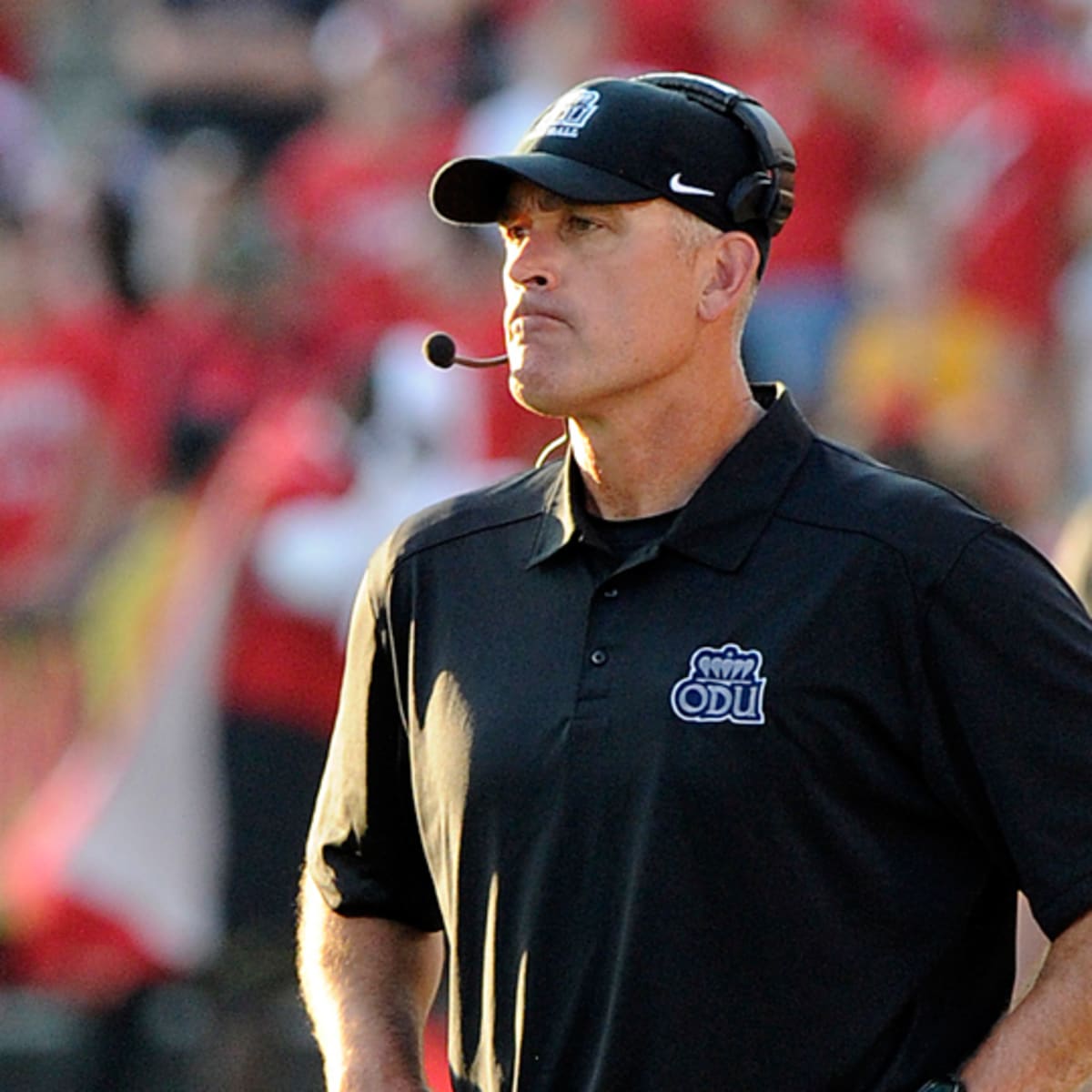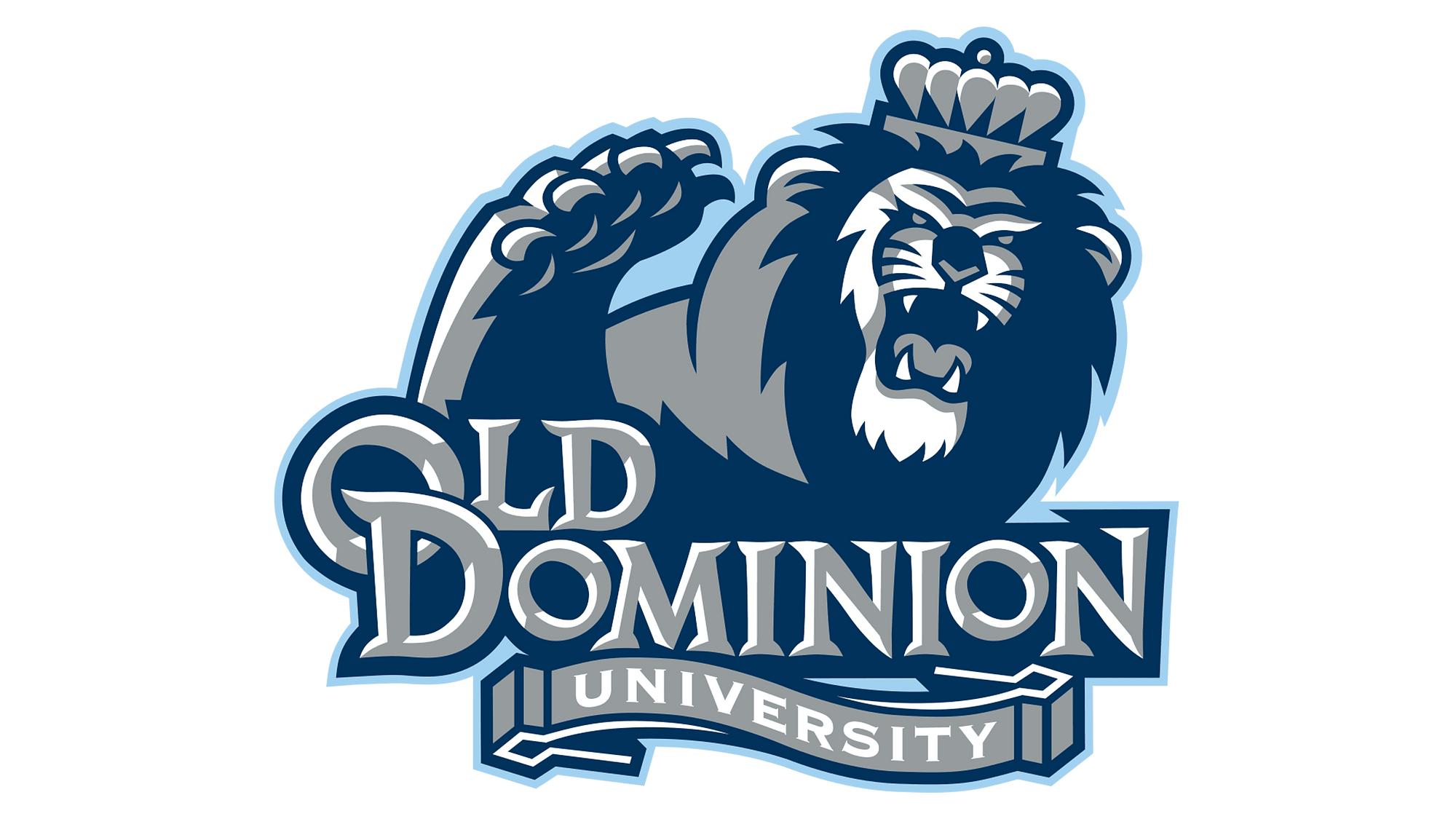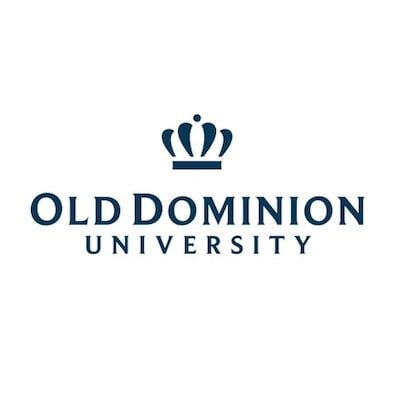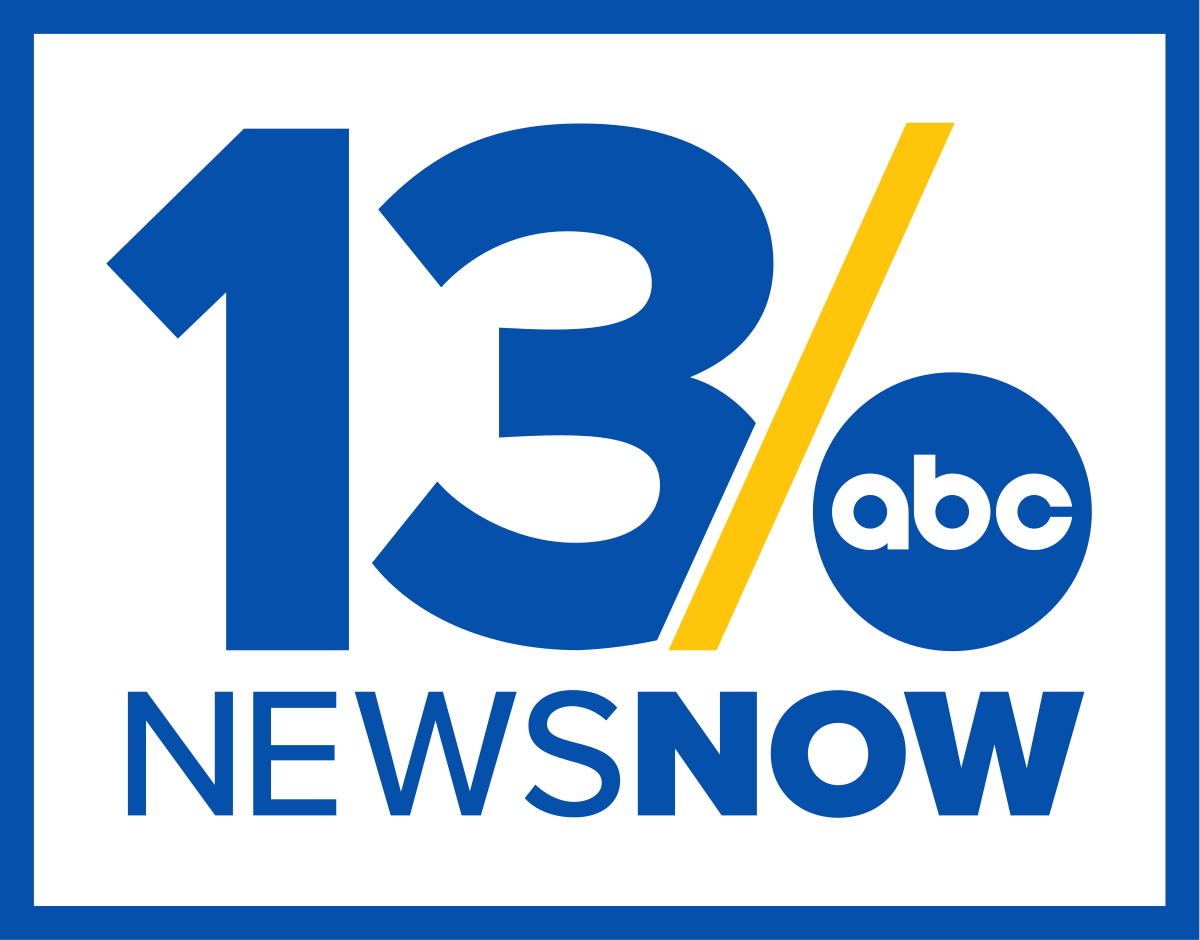In February 2007, Old Dominion tabbed longtime Maine assistant Bobby Wilder coach to lead its program into a new era. Nearly every new hire across college football is asked to do the same, but this request came with a twist: ODU didn’t have a football program.
The Monarchs once did play football, however, fielding a team from 1930-40 and finding some success under former coach Tommy Scott. Then it shut its doors for nearly 70 years before experiencing a rebirth in 2009. By that point, Wilder had spent the previous two seasons not playing games but building a foundation from scratch, implementing the schemes and identity behind ODU’s rocket-like trajectory.
Remarkably, ODU has gone 52-20 since the start of the 2009 season, winning games on four different levels of competition: as a Football Championship Subdivision independent, as a member of the Colonial Athletic Association, as a Football Bowl Subdivision independent as a member of Conference USA. The 2011 and 2012 teams reached the FCS playoffs, with the latter finishing in the top five nationally.
Last year’s team, the first to play a full-fledged FBS schedule, won its last three games to reach bowl eligibility. That was the worst team of Wilder’s tenure, record-wise, but “my favorite football team out of the six,” he said.
“These kids faced so much adversity,” Wilder said. They just hung in there, they hung together. These kids stuck with us. I was really proud of this group.”
As he prepares for the Monarchs’ second season in Conference USA, Wilder spoke by phone with USA TODAY Sports national college football writer Paul Myerberg about interviewing and getting the job in 2007, the five factors behind his program’s success, quickly identifying his next quarterback and the mentality it takes for teams transitioning to the FBS to hit the ground running.
Q: After spending such a long time as an assistant at Maine, what drew you to Old Dominion during the interview process in 2006 and 2007? Were you intrigued by the opportunity to put your imprint on a new program? I have to think that was also a little intimidating.
A: My wife Pam and I had a conversation during the summer of 2006, and we both just felt like it was time for me to become a head coach. We had established ourselves, we had established our family. We just felt like it was time. I’ve always been of the philosophy, and I tell this to all the younger coaches that I meet with, that you should make the job you have a great job. Don’t be a guy that’s always looking for that next job. Make the job you have the best job, and that’s how I felt about coaching at Maine.
I was there for 17 years. I was the associate head coach and offensive coordinator. Had a lot of responsibility. I felt like I was in a great place. But in the conversation my wife and I had in 2006, we just said, it’s time. I’m 42 years old. Been coaching for 19 years at that point, because I was a (graduate assistant) at Boston College for two years. I felt like it was time. And the first job I interviewed for was the Idaho State head coaching job. Paul Bubb was the athletics director at the time. Paul had been an associate athletics director at Maine so we knew each other.
So I interviewed for that job in December (of 2006) and according to what Paul told me, I finished second out of six guys. And when you’re going for a head coaching job, finishing second is the same as finishing last. It doesn’t matter. But I got a lot of confidence from that interview, going through the process. I found out on Dec. 23, he called me and gave me the news. It was Dec. 28, I was having a conversation with a friend of mine, Bob Benson, who was at the time the defensive coordinator at Towson. I was telling Bob, you know, I didn’t get the job.
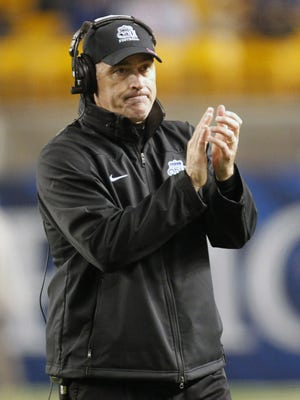
He said, “Hey, they’re starting a program down at Old Dominion. I think it’s got a shot to be pretty good. They’re eventually going to be in the (Colonial Athletic Association).” Which was the league we were in at the time at Maine. He said, “I put my name in. I don’t think I have any shot. They’re going to hire a guy from Virginia or Virginia Tech.” So I just said to Bob, would you mind if I inquired about it? He said, “No, not at all. That’s why I’m telling you. Put your name in and see what happens.”
So I called on Dec. 28. Ended up speaking with the athletics director, the former AD now, Jim Jarrett, and I told him who I was, a little about me. He said I needed to get my application in. The deadline was Dec. 31. So my wife and I were scrambling to get a cover letter done … I got it done and sent it out there just in the nick of time. What I really felt made the difference for me was … I was down at the national convention in San Antonio and hadn’t heard anything back. So we were getting ready to board the plane and I’m with my associate head coach now, Brian Scott. We were working together in Maine then.
I said to Brian, I’m just going to call the office, see what happens. So I called and the secretary put me through to Dr. Jarrett, who was at the time with John Broderick, the vice president and co-chair of the search committee. John Broderick is now one of my best friends, he’s president of Old Dominion. He and I have become really close. They put me through to interview for about a half-hour, and Brian’s literally waving at me because we’re going to miss our flight. I’m on the call, like, what can I do? I’m on the interview of my life right now. If I miss the flight I miss the flight.
So I had a great phone interview. Was fortunate enough to catch my flight. That led to me being brought down for the initial interview where I was one of six people. Had a great official interview. It was off-campus with Dr. Jarrett and President Broderick; no one else was involved. They gave me a quick tour of the facility and then they put me back on a plane. A week later, I’m coming back down as one of four. This was the point where I really thought I could get the job because at the point (Virginia coach) Mike London took his name out. So then I thought, wow, maybe I’ve got a shot at this.
They brought me back down for my second interview, and this was the big one — this was with the president, with the search committee, with all the administration. They put me through about a six-hour interview with everybody. I just think I nailed it. Our associate athletics director, Debbie White, said it was one of the best interviews she’s ever seen. I just felt really good about it. I felt like this was the job I’d been waiting my whole life for. To be a first-time head coach, to build a program from the ground up.
I got the call from Dr. Jarrett. He offered me the job. Started to go through the terms of the deal. I said to Dr. Jarrett, you know, I don’t care about the money. I want the job. I’ll sign the contract. I didn’t know when I first agreed to the job what the pay was going to be. I just knew I wanted the job. Honestly, money never mattered to me. In my 17th year at Maine, as an associate head coach, I was making $55,000. At age 42. So when I say the money didn’t matter … I just wanted to be a head coach. That’s the whole story right there. That’s how it happened.
Q: One of the interesting things about your tenure at ODU is that there hasn’t been a hiccup. The expectation you have for any start-up program is there’d be a learning curve. Looking back now, can you give your thoughts on why it’s been such a nearly seamless process?
A: There are probably four or five really good reasons, but the number one reason is that we hit on the quarterbacks. That’s the number one reason. I laugh sometimes when I hear coaches talk about how every position in football is equally important. It’s not. Quarterback is the position. You can win in basketball if you’ve got a great player at any position. There are certain sports you can be good at. But you’re not going to be good in football if you don’t have a good quarterback.
Thomas DeMarco, a junior-college quarterback out of Palm Desert, Calif., was our quarterback for the first two years when we went 17-5. And then for the last four years, we’ve had Taylor Heinicke out of Collins Hill High School out of Georgia, who’s currently sixth all-time in passing yards in the history of college football. So in six years we’ve had two quarterbacks. That’s the number one reason why we’re 52-20.
Number two is John Broderick, our president. He supported the program, got behind it. He and his wife know our kids personally. They travel to games with us. They’re in the tunnel after every game, win or lose. If you’re a college coach and the president is behind you, you’ve got a shot to be really good.
Number three was when we hired Wood Selig to be the athletics director (in 2011). He transitioned Western Kentucky from I-AA to I-A so he gets it. Knows how to do it. That’s been absolutely crucial. Number four is the staff. I’ve had some guys with me from the start. The key guy’s been Brian Scott, our associate head coach, and the offensive coordinator. We’ve been top 10 in the country in almost every category for six straight years. When you talk about a startup program, that’s ridiculous to even be that consistent all the time. Brian’s been my right-hand man with everything.
And then the fifth thing is just the support. We’ve had 41 straight sellouts. We’re sold out every game. We’ve got a brand-new stadium that’s going to be built … probably done by 2018. So on the facility part of things, they’re going to build us an incredible practice facility. They’re doing a $5 million renovation on it starting this summer. So that’s part of it. It’s been the quarterback, it’s been the president and the AD, the staff, and then the support. It’s just been over the top. Who does that? Who sells out every game that they’ve played? I’ve never heard of it.
Q: When it comes to this year’s team … You’ve touched on how vital quarterback play has been thus far. Do you feel like you’ll get a solid level of production from a position that really lacks experience heading into the fall?
A: We’ve got a redshirt freshman named Shuler Bentley who played at Byrnes High School in South Carolina, one of the top programs in the country, and threw for nearly 6,000 yards and 71 touchdowns his senior year running a power offense as we run. We were fortunate to sign him. He committed to us in May (of 2013) and then he goes on national TV in August, on ESPN against Apopka High School in Florida, and threw like seven or eight touchdowns.
I’m sitting there with my staff watching it. With every touchdown pass, I’m getting lower in my seat. Just looking, going, OK, we’re done. The secret’s out now. But he stayed with us. East Carolina came in, Cincinnati came in, he had a lot of schools, but he liked our system. Our quarterback’s coach, Ron Whitcomb, is one of the young, up-and-comers in the coaching business. Those two really hit it off, had a great bond.
We were fortunate that his dad, Bobby, had been a college coach and was the head coach (at Byrnes). He left when his son left to come to Old Dominion. He took a job with Gus Malzahn at Auburn. Bobby could see what was going on. He knew that we had been on his son for over a year. He really liked our system, trusted us. So we were fortunate to get him.
He won the job this spring. We had a competition going and he won it. I’m hoping that he’s going to be that next guy. I would love it to be three quarterbacks in 10 years of Old Dominion football.
Q: One of the things the UTSA staff did in a similar situation is “sell a dream” to recruits, fans, boosters, and supporters, Larry Coker told me last summer. Did you feel the same way during those first seasons?
A: Yeah. One of the rhetorical questions I would ask recruits was, how many times in your life do you get to be the first at something? I would keep reminding them of that, to think of that. You’re not going to be breaking records, you’re going to be setting records. That was really intriguing to a lot of those kids that we recruited initially. We lost our fair share of really good players, but we were always in the mix with kids who had a lot of scholarship offers.
Right from the start, we were beating schools, even in that first year of recruiting. I remember (cornerback) T.J. Cowart was one of the initial big-name players that we recruited from Virginia Beach. He had a couple (Mid-American Conference) offers and he turned them down to come to us, even knowing that he was going to have sat the 2008 season as a redshirt because we weren’t even playing. That happened early on with a number of kids. And like anything, when that gets out people are aware of that happening.
Q: Looking back to a year ago, you beat a couple of good teams — Rice and certainly Louisiana Tech — and probably, I’d think, felt you could’ve won another game or two. Looking back at a 6-6 season, do you feel like you were ready to take the next step against the FBS competition?
A: I felt confident that we could find a way to get to six wins, particularly with the quarterback that we had. I felt like we could get to six wins. I felt like if we could get to six wins and be bowl eligible that would be an outstanding season. We were realistically picked to be down near the bottom of the league, which we should have. We only had two classes of FBS recruits, we were playing with three classes of FCS recruits, and we were committed to redshirting the majority of the class we brought in this past year, which was the No. 2-ranked class in Conference USA.
So I knew it was going to be a major, major battle. But what I was most proud of this year was, we were 3-1 but then we had a five-game losing streak. And we found a way to win our last three games of the year. That showed a lot of resolve out of these kids. Very rarely do you see a team that’s 3-6 come back and win out at the end of the season? And we beat the West (Division) champs, we beat Louisiana Tech, which ended up 7-1 (in conference play). And all four games that we won in the league came on the last play of the game.
That’s pretty remarkable. That shows a lot of resolve out of the kids and the coaches. So even though this was the worst season we’ve ever had, record-wise, in Old Dominion football history, that might have been the best performance by a football team, to overcome the adversity that these kids overcame at the end of the season. I was really proud of this team. This was my favorite football team out of the six. Even the 11-2 team in 2012 that ended up No. 4 in the (FCS).
These kids faced so much adversity. They just hung in there, they hung together. They kept believing in the coaches. And a lot of times, the kids will turn on you, on the coaches, when it’s not going well. These kids stuck with us. I was really proud of this group. This was my favorite team.
Q: Are you able to take a step back and look in a similar way during your entire tenure? Are even you a little surprised by how the program has progressed so rapidly in short a short period?
A: There’s one line that I use a lot when I talk to people, and I genuinely mean it: I feel like I’m living the dream right now as the head coach. This couldn’t have gone any better through the first six years. I’m amazed at what our kids and our assistant coaches have been able to accomplish. Because you would have thought at some point we would have hit that wall. USF hit a wall. Coastal Carolina hit a wall. At some point, you just think that it’s going to happen. And because we’ve been really good at quarterback and for the most part we’ve stayed healthy, we haven’t hit that wall yet. We’ve been able to keep ascending and keep improving.
One of the lines I use with the kids a lot is that I am living the dream. I feel fortunate every day when I stick my key in the door that it works. My line is, don’t take this for granted. What we’ve accomplished has been really special but it took a village to do this. When I say it took a village, I talk about all the fans … We call our fans the “12th Monarch.” They travel with us.
We took 5,000 fans to N.C. State last year. How many people do that outside of the SEC? They love us, they’re having a great time. The university has set up a tremendous tailgate experience for the fans, so even the ones that don’t necessarily love Old Dominion football, the game-day experience is really remarkable.
Q: And winning at this clip is rare when compared not just to fellow startup programs but to any program that has made a similar move from the FCS to the FBS.
A: I’ve got a theory on that, that the amount of FCS teams that have moved up to the FBS … there’s a little bit of that little-brother syndrome that happens to you when you make that move. You’re the little brother that’s constantly trying to prove you belong with your big brother. And if you’re going to run with your big brother you’ve got to do something to get his attention so he’ll accept you. That’s how I feel about a lot of the FCS teams that have moved up.
There’s a number of them in Conference USA. We had a remarkable year last year in Conference USA. We ended up as the second-ranked Group of Five conferences behind the Mountain West. We were ahead of the (American Athletic Conference), the MAC, the Sun Belt. We were 4-1 in bowl games for the second straight year. It’s two years in a row we’ve had the best bowl (winning) percentage.
We talked about that last week at our meetings. We’ve got to keep doing that. We’ve got to keep playing the autonomy-conference teams and we’ve got to beat them. That’s the only way the little brother is going to get any respect from the big brother.
Published: May 21, 2015
